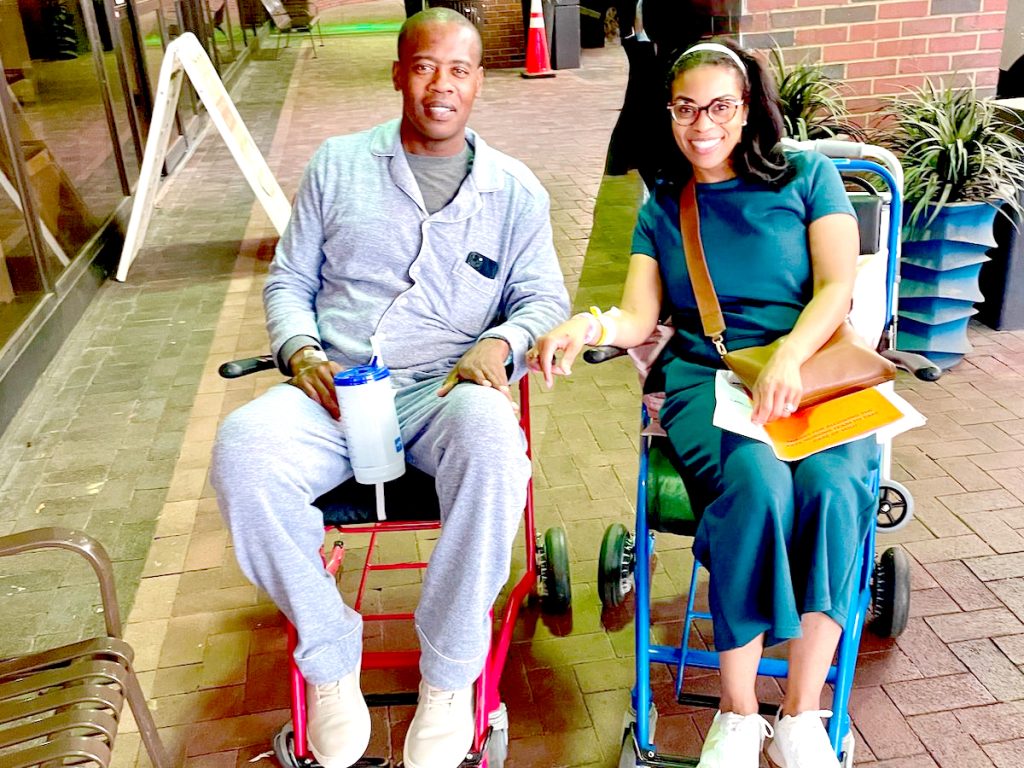SPEAKIN’ OUT NEWS

HUNTSVILLE, AL — Kidney disease is a silent threat in the African-American community. High blood pressure and diabetes—two chronic conditions that disproportionately affect Black Americans—are the leading causes. Most people don’t experience symptoms until their kidneys are functioning at just 10 to 15 percent. In Alabama, where kidney disease rates are among the highest in the nation, early detection and access to care can mean the difference between life and death.
That was the reality for State Representative Anthony Daniels, who went from feeling fatigued during the opening days of the legislative session to being rushed into life-saving treatment. The 42-year-old husband, father, and Democratic leader from Huntsville never expected to become part of this growing health crisis. But earlier this year, his kidneys began to fail—forcing him to rely on dialysis, and eventually a transplant, to survive.
“I was just kind of feeling fatigued the night of the governor’s State of the State,” Daniels told AL.com. “And I thought maybe it was because I was not sleeping a whole lot.”
A Wife’s Love and a Perfect Match
As Daniels came to terms with his diagnosis, his wife, Dr. Teneshia Daniels, was already preparing for battle. A dentist and devoted mother of their two children, Abigail (9) and Anthony Jr. (7), Teneshia was more than willing to help—she was a biological match and stepped forward to become his living donor.
“There were a lot of unknowns,” Daniels said. “But she was insistent upon being my donor and getting this process behind us.”
The transplant took place at UAB Hospital in June. Today, both husband and wife are recovering at home, slowly regaining strength through prayer, perseverance, and daily walks. Daniels said his wife endured more post-op pain than he did—but never complained.
“My wife is the real hero here,” Daniels said. “She had to take time away from her job to make sure I was taken care of. And she did it with grace.”
Faith and Family Through the Storm
Daniels didn’t rely solely on medicine. He credits his faith in God and the unshakable support of his family—especially their children, who rose to the occasion during their parents’ hospital stay.
“Things like this test your faith and your love,” Daniels reflected. “But I’m blessed to have strength in both.”
Despite experiencing post-surgical pain and complications, Daniels avoided prescription pain medications due to side effects and instead focused on staying mobile to speed his healing. He walks daily and encourages others to listen closely to their bodies—especially in communities where medical conditions often go undiagnosed or untreated.
“You can’t look at a person and tell how healthy they are,” he warned. “You have to check every number and ask every question.”
Daniels, who has had COVID-19 four times, wonders whether those infections may have contributed to the rapid decline in kidney function. Still, he’s focused not on what caused his illness, but what saved his life—and how to pay it forward.
Crossing Party Lines, Building Compassion
Daniels’ health crisis brought out support from unexpected places. Republican House Speaker Nathaniel Ledbetter and Majority Leader Scott Stadthagen offered prayers and private encouragement, setting aside political differences in a time of need.
“Certainly his wife being a donor is a big deal,” Ledbetter said. “It shows the passion they have for each other.”
Stadthagen added, “You can disagree on policy and still love someone as a brother.”
Both leaders say Daniels’ story is a reminder of shared humanity, especially in a time when divisiveness so often overshadows empathy.
Turning Pain into Purpose
Now on the road to recovery, Daniels is passionate about spreading awareness about kidney health in the Black community, and the importance of living donors.
He hopes his wife’s act of courage will encourage others to do the same—whether for a loved one, a friend, or even a stranger in need.
“Being able to see selflessness displayed like that—it should inspire people,” he said. “I don’t know how long I would’ve been around without her. And I’m extremely grateful.”
Daniels said he plans to advocate more aggressively for organ donation education, especially in underserved communities, and hopes that people will take action before it’s too late.
“We don’t talk about kidney disease enough in our community. We don’t ask the right questions, and sometimes we wait too long. I want to help change that.”

